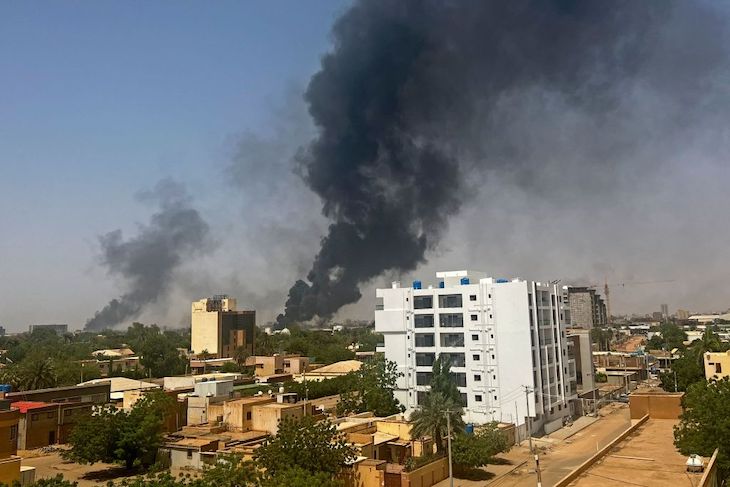Fighting is raging once again in Khartoum, the capital of Sudan, where a power struggle between rival factions has claimed the lives of hundreds of people. Around 185 people have been killed and more than 1,800 injured in the wake of an attempted coup.
A US diplomatic convoy came under fire yesterday and the EU’s ambassador in Sudan, Aidan O’Hara, was reportedly assaulted at his home. Journalists have been detained and beaten up by soldiers for breaking newly-imposed curfews. Across Sudan, international agencies, non-governmental organisations and charities are scrambling for a solution to prevent further bloodshed.
Military aircraft have flown low over urban centres and engaged targets on the ground. Residents in Khartoum are terrified of the eruption of what feels like a war within what is normally a peaceful city. Gunfire has been heard on state TV, presumably taking place within the building.
The fighting continues, with very little sense – at least outside the country – what is going on and who is winning
A contest appears to be shaping up between the country’s regular army – which is effectively a military junta – and a paramilitary force called the Rapid Support Forces (RSF), whose leader, General Mohamed Hamdan Dagalo, was supposed to be a figure in the current military regime: a council of officers, led by the army chief, Abdel Fattah al-Burhan. But

Get Britain's best politics newsletters
Register to get The Spectator's insight and opinion straight to your inbox. You can then read two free articles each week.
Already a subscriber? Log in






Comments
Join the debate for just £1 a month
Be part of the conversation with other Spectator readers by getting your first three months for £3.
UNLOCK ACCESS Just £1 a monthAlready a subscriber? Log in